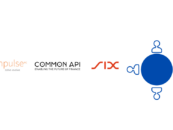In Argentina, the central bank is paving the way for open banking, introducing new regulation and initiatives to encourage digital payments and enable interoperability.
New measures for regulating virtual wallets were adopted in May 2022 by the board of Banco Central de la República Argentina, the country’s central bank.
The rule mandates banks, fintechs, payment services providers and digital wallet administrators to provide their customers with the ability to link other accounts. This ultimately means that customers will be able to carry out payments and transfers through one particular digital wallet but using funds deposited in another account.
Banks will also be required to provide account information to payment services providers to facilitate this function. Industry participants have until September 30, 2022 to comply and incorporate the necessary capabilities, the central bank says.
The new regulation is one step further in developing interoperability and open banking in Argentina, and follows on initiatives like Transferencias 3.0 (Transfers 3.0).
Launched in November 2021, the Transfers 3.0 is a real-time digital payment scheme that uses QR codes. The system allows users to make payments through transfers from any bank or payment account. It aims to enable interoperability between service providers by providing a standardized payment platform, and seeks to help boost digital payments.
So far, adoption of Transfers 3.0 has been strong, with more than 2 million transactions worth a total of ARS 3.5 billion (US$28 million) recorded in the first two months of operation, data from the central bank show.

Transfers 3.0 transactions as of January 2022, Source: Banco Central de la República Argentina
These developments come on the back of rising adoption of fintech solutions in Argentina and a booming digital finance landscape.
According to Ignacio Plaza, president of Cámara Argentina de Fintech (Argentine Chamber of Fintech), there are now over 30 million virtual accounts in the country, representing more than half of Argentina’s population. About half of the money transacted domestically involve virtual accounts, Plaza told local newspaper Ámbito Financiero in an interview on June 30, 2022.
Digital investment is another fast-growing fintech segment, he said, noting that there are now six million investment accounts, or 14 times more than three years ago.
Reflective of the sector’s growth, the industry has been actively recruiting new talents, employing an estimated 15,000 as of May 2021, data from Cámara Argentina de Fintech show. A report by local newspaper La Nación claims that the number rose to over 19,000 by the end of 2021, and according to Plaza, it’s now surpassed 22,000.
Compared to previous years, Plaza expects fintech companies to slow down hiring this year amid funding cuts and the ongoing economic downturn. There should also be signs of consolidation in the market, with a number of mergers and acquisitions (M&A) deals to take place.
In March, American online personal finance company and online bank SoFi Technologies announced the completion of its acquisition of Argentine digital banking software vendor Technisys. Technisys, which provides a cloud-native, digital multi-product core banking platform, serves more than 60 established bank, fintech and non-financial brands in Latin America and the US.
Meanwhile, Argentine fintech unicorn Ualá has been on an acquisition spree since at least 2021, snatching up Mexican bank ABC Capital – a deal that has yet to be approved by regulators –, Argentine e-commerce platform Empretienda, and, most recently, digital banking rival Wilobank.
2021 was a fructuous year for fintech companies around the world. These enjoyed record levels of funding, raising a total of US$132 billion – or double what was raised in 2020, data from CB Insights show. In Latin America (LatAm), fintech funding reached an all-time high of US$13 billion, up 269% year-on-year (YoY).
Soaring funding activity pushed valuations further up, allowing Argentina to witness the minting of its first tech unicorn. Ualá, a personal finance management app, reached a US$2.45 billion valuation after raising a massive US$350 million Series D led by SoftBank Latin America Fund and affiliates of China-based Tencent.
Founded in 2017, Ualá is the developer of a digital banking app intended to democratize access to financial services. The app is linked to an international Mastercard, and users can carry out a wide variety of transactions including transfers, bill payments, mobile phone top-ups, and more. Ualá also allows users to keep track of their expenses and personal finances. The company started venturing into the investment space in late-2021, allowing customers to purchase US dollars through a parallel rate known locally as “Dolar MEP.”
Ualá operates in Argentina and Mexico, and launched earlier this year in Colombia. The company is said to be serving more than five million clients across LatAm.
This article first appeared on fintechnews.am







